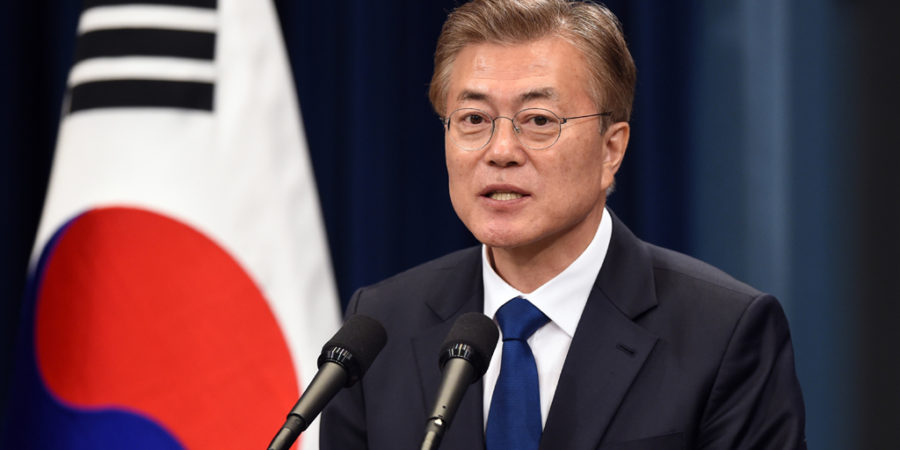South Korean president arrives in Washington

WASHINGTON, JUN 29 (DNA) – South Korea’s President Moon Jae-In arrived in Washington Wednesday on his first overseas trip since taking office, for planned talks with his US counterpart Donald Trump.
Moon, who backs engagement with nuclear-armed North Korea, was to meet Thursday with Trump during his first foreign outing since being sworn in last month after a landslide election win.
Late Wednesday, he was scheduled to take part in a wreath-laying ceremony at a war memorial in Quantico, Virginia, and later was to attend a summit with Korean and American business leaders.
His agenda on Thursday includes meetings with lawmakers on Capitol Hill and an evening visit with the US president and First Lady Melania Trump, including a reception and dinner.
On board his flight to the United States, Moon said Seoul and Washington should offer concessions to Pyongyang if it complies with their demands, according to multiple South Korean reports.
“Without rewarding North Korea for its bad actions, South Korea and the United States should closely consult what they may give the North in return for a nuclear freeze,” he said.
“We should start dialogue with North Korea,” he said, but with conditions, saying that “at least, North Korea should restrain itself from further nuclear and missile tests and promise a nuclear freeze before full-fledged dialogue for nuclear dismantlement can start.”
“A nuclear freeze is a gate to dialogue and the exit of the dialogue is a complete nuclear dismantlement.”
Washington, South Korea’s security guarantor, has more than 28,000 troops in the country to defend it from its communist neighbor, which has been intensifying missile tests — including five since Moon’s inauguration.
Pyongyang is seeking to develop nuclear-capable ballistic missiles that could reach the continental United States.
Trump has been pushing for tougher sanctions against Pyongyang to curb its nuclear ambitions and whose administration has said military action was a possibility.
Also expected to be high on the agenda is likely to be a controversial US missile defense system that has been installed in South Korea to guard against missile threats from the North.
Though parts of the Terminal High-Altitude Area Defense (THAAD) system are already in place, Moon suspended further deployment following a furious campaign of economic sanctions and diplomatic protests by Beijing against the US missile shield, dealing a blow to Washington’s regional security policy.
Officially, the delay is to allow for a new, comprehensive environmental impact assessment, but analysts say the move is a strategic one by Moon to delay the tricky diplomatic situation he inherited.
Holding out the prospect of a peace treaty to finally replace the armistice that ended the Korean War in 1953, Moon added: “Together with the nuclear dismantlement would come the establishment of a peace system on the Korean peninsula.”=DNA
===============
Related News

Buy helmet, avoid challan; Motorway Police launches “Challan Nahi, Helmet” campaign
Various helmet stalls set up on GT road, Murree expressway ISLAMABAD, MARCH 4 /DNA/: TheRead More

T20 World Cup: England victory over New Zealand keeps Pakistan in semi-final race
COLOMBO, FEB 27: England defeated New Zealand by four wickets in the Super Eight thrillerRead More


Comments are Closed